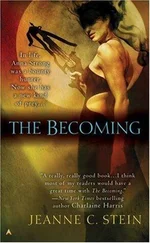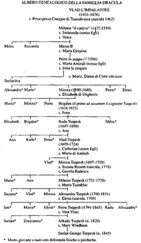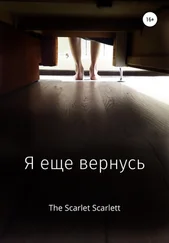1 ...7 8 9 11 12 13 ...28 “I grew up there,” he said, “but was rescued in my youth by a patron. I got my education from the monks at San Marco in Florence. When I was older, I went to the University of Pavia, where Cicco recruited me.”
“So there is no one in Florence for you?” I asked. “No patron? No adopted family to return to?”
He almost answered, then stopped himself and gave a crescent moon smile. “None. But I have many dear friends there.” He hesitated. “You would love it. There is no fear there, as there is here. . . .” He dropped his gaze suddenly, realizing that he had said a politically dangerous thing. “The people are happier and speak freely. The world’s best artists live there because the nobles support them.”
“Nothing could be more beautiful than Milan,” I said firmly. I had never traveled and therefore feared it; Bona was my refuge.
“Once you see Florence, you’ll change your mind,” Matteo replied.
I did not think much about my friendship with Matteo, for his interest in me was kindly but not obsessive, though at times, I would look up from a conversation during a gathering for the ducal staff, and see Matteo looking at me; he always flushed and averted his eyes.
Perhaps, as I grew older, I was a bit attracted to him, but given Bona’s stern religious instruction and my desire to cast off my parents’ sin, I had no interest in marriage or the pleasures of the flesh. The world was a fearsome, wicked place, and I lucky to be alive and under Bona’s pious wing; when I was twelve, I begged her to send me to a convent, but she would not. (I am grateful now she did not sent me to one, for I later learned that, when drunk, Galeazzo liked to pay nocturnal visits to the nunneries, in order to assert what he considered his ducal privilege upon the poor women there.) I vowed never to marry, but to remain celibate and serve none but God and Bona all my days. And so I paid no mind to Matteo’s fraternal attentions.
The duke, however, paid no mind to my vow. When I turned sixteen, he pressed Bona to find a husband for me—no matter that I had no dowry, so that a decent match was impossible. After some months, when the duke realized that she was intentionally delaying the matter, he announced that I was to marry the master of Bona’s stables, one Ridolfo, who had recently lost his wife. Ridolfo was gray-haired, potbellied, and profoundly uninterested in the arts. He understood only dogs and horses, and those none too well, for he had lost his front teeth to a stallion unappreciative of his constant lashes. His dogs despised him for similar cause; I had no doubt his late wife had been relieved to quit his company. Even before she died, Ridolfo always leered at me and the youngest women. Apparently the thought of tender virgin flesh made up for the lack of a dowry.
When I learned of the marriage, I wept and begged Bona to cancel the wedding or let me flee. She had enormous sympathy for my situation, but she could not disobey her husband. As my wedding day grew closer, I grew more frantic.
Then Matteo went to the duke and asked for my hand.
At the July wedding—a small affair in the ducal chapel, attended by Bona, her ladies, Cicco, and Matteo’s fellow scribes—my groom was too stunned by his own decision to meet my gaze. After the ceremony, he kissed me not on the lips, as was proper for man and wife, but upon the brow. At the small banquet in the ground-floor servants’ hall, his gaze was, for once, directed at everyone but me. He drank a bit more than his portion of wine that night, and I more than mine; clearly, the bride was not the only one to dread the wedding night.
We went to his chambers to find the bed strewn with rose petals; Bona’s maid Francesca helped me quickly to undress down to my chemise, while Matteo hid behind the open doors of his wardrobe and fumbled with his own clothing. Once Francesca had left, I climbed into the bed, drew the covers up, and waited for my naked husband to appear.
Matteo emerged minus his doublet but still dressed in his short chemise and leggings. He pointed to a fur rug in front of the cold hearth. “I will sleep there tonight,” he said, still without looking at me.
I stared at him in amazement. The thought of sexual congress had left me terrified, but the priest had pronounced us wed. We were, to my thinking, obliged to couple whether we wanted to or not. “Why do you not come to bed?”
“I . . .” His cheeks flamed. “Dea, I could not bear to see you forced into such a terrible marriage, to a cruel man far beneath your station. But I—”
“You do not love me,” I finished calmly. How had I so misinterpreted all those longing glances over so many years? “You are doing this out of kindness, of course.”
He drew a breath, squared his shoulders, and sat down beside me. Taking my hand, he finally looked into my eyes. “I love you more than anyone else in all the world, Dea,” he said fiercely. “And I vow to protect you from harm and care for you tenderly. I am your truest friend, but I can never be more than that. Do you understand?”
“Yes,” I said. “You don’t fancy women, then.”
He let go a short, unhappy laugh. “It’s not that at all. It’s . . . simply a very complicated situation. The time will come soon, though, when I can explain why things must be so. But for now, I ask you to trust me. And one more thing . . .”
I lifted an expectant brow.
“For your sake, and mine, we must pretend that we have consummated our marriage. It is the safest course. Could you do that, Dea, knowing that I love you and want only the best for you?”
His words and eyes radiated compassion; I imagined I heard honest anguish in his tone. Even so, my temper flared. He was lying about preferring women to men, I decided, because it was a mortal sin and one that, discovered, could lead to his disgrace and even death. Yet I was furious that he would not trust me with the truth. He had said we were true friends.
I dropped his hand, picked up the feather pillow beside me, and, with all my strength, struck him hard in the face with it. Then I flung myself down on the bed, turned my back to him, and lay there a few minutes before my indignation yielded to tears. Even now, I am not sure why I cried so abruptly and bitterly; I should have been relieved.
When he lay down beside me and put his arm around my shoulder, I did not pull away. We passed the whole night thus.
My pride was wounded, but I quickly recovered. After all, I now had something I had never known before: a family, even if it consisted only of Matteo. For the first time I truly belonged to someone else, and he belonged to me. And I did not, like all other women, crave children—in fact, I privately thought it cruel to bring a new soul into such a wicked world. I enjoyed Matteo’s company, and resolved to live contentedly with him without relations.
Resolutions are such feeble things.
I had expected to love him as I might a friend, a brother. I had not expected that he would be ever thoughtful of me, that he would daily do me small kindnesses, bring me small gifts, take joy in my delight. I had not expected that I would lie in his bed pretending to sleep while he worked late at the small trestle desk in his chambers; I had not expected the way the lamplight would paint his skin golden, would cause shadows to nestle in the hollows of his cheeks and throat, would spark glints of copper in his hair.
During the days he worked upstairs in the men’s wing with Cicco and the rest of the clerical staff while I spent the time with Bona. At night, he worked alone, in our chamber, on the most secret projects. I was proud that Cicco had entrusted the most delicate matters to him, even at the same time that I was annoyed that Cicco overworked him so. Matteo was discreet: he never discussed his work, nor left the papers out where I could see them. Sometimes he read; most of the time, he wrote and wrote. When he was finished, he gathered his papers together and quietly placed them in a compartment hidden in the wainscoting, which he locked; the key hung from a leather thong about his neck.
Читать дальше












